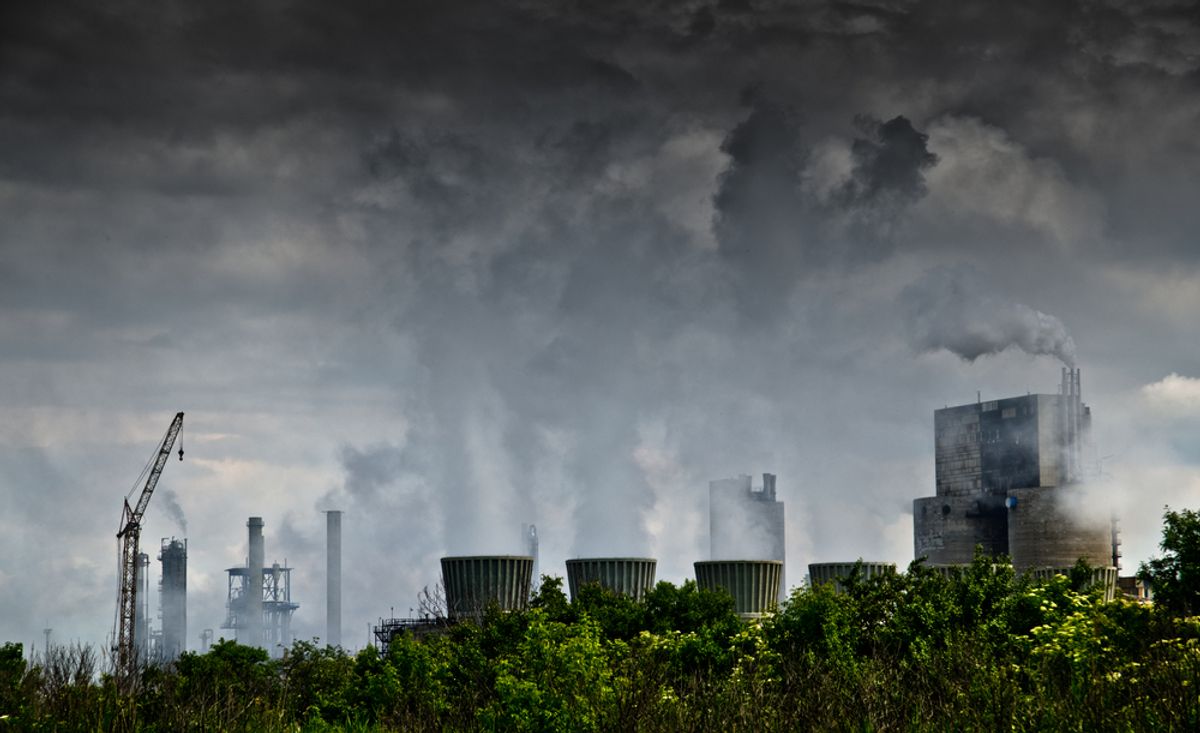A decade ago, officials in Tongliang, a Chinese town of 800,000, shut down a coal-fired power plant, replacing it with the national grid's electric system. In so doing, they created the perfect conditions for a long-term study of the health effects of China's smog crisis.
The plant, while it was still open, spewed out toxic pollution at eight times the United States' emissions standards at the time. And the newest findings from the study show that children whose mothers were exposed to those emissions may have experienced genetic changes as a result. Bloomberg News reports:
Babies born in the southwestern Tongliang county just before the plant was shut in 2004 had significantly lower levels of a protein crucial to brain development in their cord blood than those conceived later, a March 19 report in the Plos One journal said. They also had poorer learning and memory skills when tested at age two, the study by Columbia University and Chongqing Medical University found.
...Developing fetuses can inherit the harmful effects of environmental pollution as that’s when the cells of organs such as the brain and heart are starting to develop. That warrants further research into the mechanisms, said Liming Bao, a professor of pathology at Dartmouth College’s Geisel School of Medicine in Hanover, New Hampshire, who wasn’t involved in the study.
“Genetic mutations could get passed along and have a long term impact, and when there’s damage to the cells, it’s difficult to reverse,” said Bao, who helped Children’s Hospital of Chongqing Medical University set up a molecular medicine unit in 2007. “It’s not something that you can switch on or switch off.”
“I wasn’t anticipating such a clear difference when we compared the first and second cohorts," Deliang Tang, the lead author of the report, told Bloomberg. "This shows how much of an impact effective policies can have on local populations."



Shares